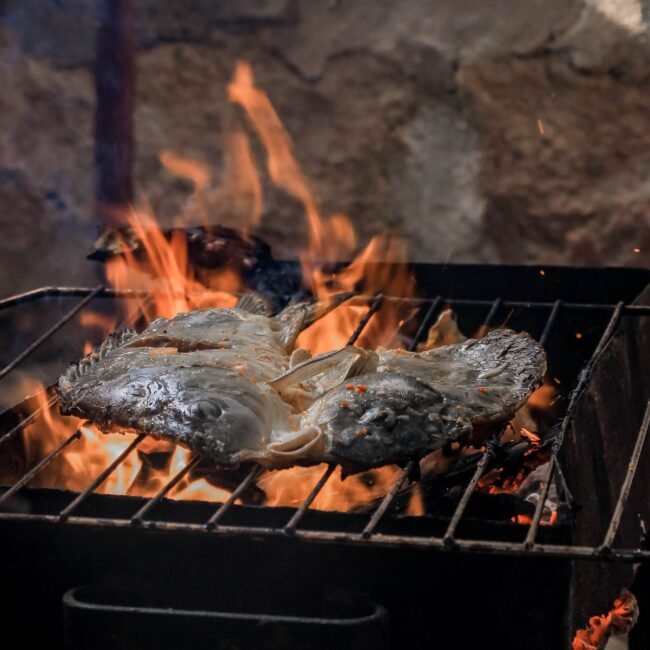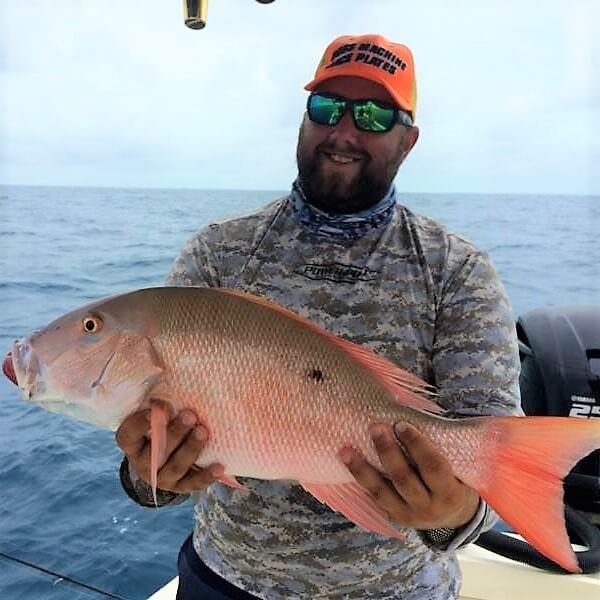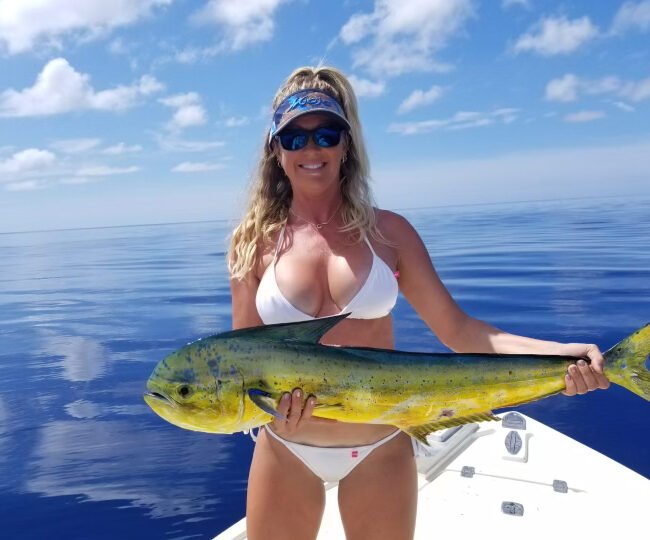
It was Mike Halberstrand.
“Need help. We’ve been drifting… engine down. 6 hours…”
Mike started to break up but not before uttering coordinates: “…won’t hold for long. We’re at latitude 27.7370° North Longitude: 82.5770° West. We’re…”
And then the call cut out. No goodbyes. Just static and silence.
The Call at 1 A.M.
It was just after 1 a.m. when Captain Phil Pegley’s phone rang, its buzz slicing through the thick silence of his Tampa Bay home. Phil was no stranger to late-night calls—usually, they meant someone had found fish, or someone had found trouble.
He answered groggily. The voice on the other end was unmistakable, even though it crackled through a weak signal. It was Mike Halberstrand.
“Need help. We’ve been drifting… engine down. 6 hours…”
Mike started to break up but not before uttering coordinates: “…won’t hold for long. We’re at latitude 27.7370° North Longitude: 82.5770° West. We’re…”
And then the call cut out. No goodbyes. Just static and silence.
This was clearly a distress call. Phil got out of bed and began to collect himself. This wasn’t his first rodeo, and nobody gives you their coordinates unless they need you there.
Mike Halberstrand—Captain Mike—was an old friend. They’d known each other for years, since the early days on Tampa Bay, often running into each other at strange hours when the fish were biting and the moon was high. They shared jokes, stories, and like all fishermen lived by an unspoken rule: when people needed rescue, you acted. It only added to Phil’s obligation that Mike was a stand-up guy and friend.
Phil slipped on his boots, grabbed his keys, and headed for the harbor. He hadn’t checked the weather, but honestly, it wouldn’t have mattered. Somebody was out there, somewhere on the bay, and they needed help. Would it make a difference if a storm was coming or the night was clear?
Within twenty minutes, Phil’s boat was humming out of the marina. The twin diesel engines purred beneath him, their rhythmic growl a familiar comfort.
The salty air and gentle chop of the bay restored his clarity. He punched in the coordinates he’d caught from Mike’s broken call and throttled up.
The night was moonless, dark and thick like molasses. A wall of black hung over the southern sky, but Phil kept his eyes ahead, the GPS his guiding light.
After what felt like an hour, a flicker caught his eye—a faint, wavering light near the shallows. No channel markers. No navigation lights. Just a pulsing glimmer in the night, bobbing gently in the dark water.
“Mike?” Phil shouted over the wind.
From the darkness came a familiar voice.
“I’d like a bacon cheeseburger with large fries—no special sauce.”
“That will be $41.50.” Phil replied. “Prices are up because of inflation.”
They laughed. Mike stood aboard his trailer-launched skiff, soggy but grinning like a man who’d just seen land after a shipwreck.
“We were calling for hours,” Mike said. “Weren’t in range until that broken call to you. We only called you because nobody else answered.”
Phil and Mike were jokers, like any good friends.
“I’m not offended.” Phil replied. “I’m so magnanimous I brought a contract to sign over your boat for the rescue.”
They laughed as Phil rigged up a tow line. With a steady hand, he eased the throttles forward, the larger boat straining as it began the slow pull toward home.
The Storm Arrives
The first five minutes were peaceful. The engines hummed. The line held. The bay rocked gently under a humid night breeze.
Mike grabbed a beer and offered one to Phil. They weren’t on duty, he figured. Phil waved it off. He was absolutely on duty.
Mike was a seasoned fisherman, but he wasn’t used to commercial charters, bigger boats. And most important: he wasn’t the one navigating or steering. At this hour a beer would calm nerves and slow wits that ought to be a little ramped-up for a captain in this situation. Still, Mike had been in distress and a drink in the thick of things is a peccadillo.
Mike cracked open his beer, took a long sip, and stared due south. His eyes narrowed.
He reached over and flicked on the weather band.
“Not to spoil the party,” Mike said, “but we’ve got a storm riding up our ass.”
The radio followed with a chilling broadcast: Static. Then the dreaded triple-beep.
BEEEEEP. BEEEEEP. BEEEEEP.
“Warning. High winds. Driving rain. Thunder and lightning. Boat use not advised. Any aquatic vessels in Tampa Bay are advised to seek safe harbor immediately.”
“That’s what we’re trying to do, Mrs. Roboto.” Phil jabbed.
No time to second guess. No time to change plans. Phil kicked the boat into full throttle, the twin engines roaring under load of Mike’s boat.
A sudden gust from the southeast stirred the bay into jagged whitecaps, as the wind kicked up and the storm overtook them.
Phil’s jaw tightened. Trying to outrun the system, he couldn’t slow down—not without risking collision with the boat in tow. They were locked together in a mechanical marriage, bound by rope and circumstance.
The storm moved like it had a vendetta. Rain started to pour, thick and blinding. The sky opened like a trapdoor.
Then came the lightning.
Twin bolts forked downward not twenty feet off the bow, lighting the entire surface of the bay like a football stadium.
For a split second, Phil could see everything—the water, the boats, even Mike’s stunned face staring through the darkness.
BOOM. The thunder cracked a half-second later, a bone-shaking roar that rattled the helm.
This process repeated for more than 30 minutes, as an otherwise calm rescue tow turned into the ride from hell.
Water lashed from all angles. Wind screamed through the T-top. The boats pitched and yawed, fighting the swell. Phil kept both hands on the wheel, eyes locked on the instruments, ears tuned to the engines.
Every second required decisions—minute throttle adjustments, course corrections, reacting to the slap of every rogue wave.
Another bolt hit just to starboard, so close it turned the rain to steam. Mike swore loudly and held on.
It was surreal – the direction of the storm, the lightening. Mike observed, “This storm’s chasing us! What’d you do to piss off Mother Nature, Phil.”
Phil didn’t disagree. The strikes weren’t random. They were marching with them—like a bomber catching flak on a run.
Somehow, the twin boats were a static-electrical feature in the water, but not drawing direct strikes themselves.
Boom. Flash. Boom. Flash.
Dragging another boat through the storm, out of cell range, praying no gear failed—it was a nightmare scenario.
Forty-five minutes is not a long time by normal standards, but an eternity when you’re being chased by fire from the sky.
Rain turned the deck into a slip-and-slide. The towline creaked under pressure. At any moment, Phil feared the smaller boat would wrench free or plow into the back of his hull. It would take on water and they’d have to cut the tow line. Lightening would strike either boat.
And a half-dozen or so other very real and concerns darted across Phil’s mind for the duration of the trip.
Phil stared at the chartplotter. Ten minutes. Five. Then finally—the channel markers.
As they entered the final approach to the boat ramp, the wind began to ease. The storm broke behind them like a spent drumbeat. The last strike fell behind them, lighting the clouds in a final theatrical flash.
It was very much as though the storm had agency and was acting out some animus toward the two captains.
The Return
The rain thinned to drizzle. The lights of the dock came into view, flickering through the mist. Phil guided both vessels in with exhausted precision.
He cut the engines. Silence flooded in, broken only by dripping water and the creak of wet dock lines.
Mike stood up slowly from the deck of his battered skiff, soaked to the bone and grinning like an idiot.
“I think I’ll have that beer now,” Phil said.
Never one to disappoint, Mike actually grabbed a beer from his pocket and handed it to Phil, who opened it and downed a few gulps.
Mike laughed—deep, cathartic belly-laughs that only come after staring down something primal and surviving. Phil joined him.
The storm had chased them across the bay, bolt for bolt, wave for wave.
But they made it. Another wild night on the water. Another page in the saga.
The Ultimate Guide to Catch-and-Cook Restaurants in Tampa Bay That Prepare Your Fresh Fish
One of the best parts of fishing in Tampa Bay is enjoying the reward after the trip.
Fishing Charters For Business: Why Fishing Charters Create Bonds, Close Deals, and Reveal Who People Really Are
There is a quiet truth that people in business, politics and entertainment have known for a long time: if you really want to understand someone, take them out of their usual environment.
Preserving Your Catch After a Charter: Storing, Transporting, and Food Safety Tips For Your Fish
This guide breaks down the best ways to store, transport and prepare your fish so you get the most out of your catch without losing quality or risking food safety issues.
The Real Cost of Running a Fishing Charter: Fuel, Gear, Maintenance & Hidden Expenses
Understanding what it takes to operate a charter helps you appreciate the expertise, equipment, and effort that go into every trip.
Understanding Tampa Fishing Regulations in Florida: Bag Limits, Seasons, and Responsible Angling
Fishing in Tampa Bay is one of the great privileges of living in or visiting Florida. Redfish cruising the flats, Snook sliding under mangroves, Trout drifting over grass beds—these fisheries make t
What Fishing Tides Really Mean for Your Trip: Understanding Incoming, Slack, and Falling Tides
If you spend enough time fishing in Tampa Bay, you’ll hear captains talk about tides the way meteorologists talk about weather patterns. Tides are more than just a rise and fall of water; they’re
How Captains Locate Fish: Inside the Technology and Techniques Used on Modern Fishing Charters
Fishing in Tampa Bay isn’t just about tossing a bait into the water and hoping for the best. Modern charter captains rely on a combination of technology, instincts, local knowledge, and real-time en
Boat Etiquette 101: How to Be the Perfect Guest on a Fishing Charter
Stepping onto a fishing charter in Tampa Bay is more than just hopping aboard a boat and waiting for fish to jump into your hands. It’s entering a small floating community where teamwork, awareness,
The 7 Most Common Fishing Mistakes First-Time Charter Guests Make (and How to Avoid Them)
Booking your first inshore fishing charter in Tampa Bay should feel like a mini-vacation, not a pop quiz. You’re here to chase Redfish on the flats, tangle with sneaky Snook under the mangroves, and









